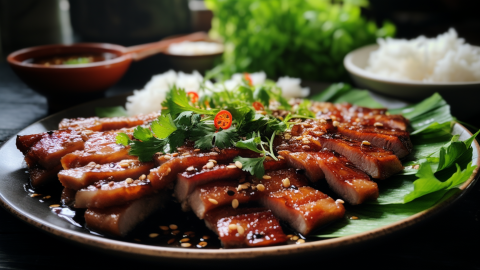What Foods Should Not Be Eaten with High Blood Pressure?
Generally, people with high blood pressure should avoid foods high in salt, oil, sugar, cholesterol, and stimulants, as these may affect blood pressure stability and are not conducive to controlling the condition. Detailed explanations are as follows:

1. High-salt foods: Common high-salt foods include pickled vegetables, preserved meats, processed meats, and seasonings with high salt content. Excessive salt intake can easily lead to water and sodium retention in the body, increasing blood volume, which raises blood pressure and places additional strain on blood vessels.
2. High-fat foods: Fried foods, fatty meats, organ meats, butter, and cream are all considered high-fat foods. These foods are rich in saturated and trans fats. Long-term consumption can elevate blood lipid levels and worsen atherosclerosis, indirectly affecting blood pressure stability and increasing the risk of cardiovascular diseases.
3. High-sugar foods: High-sugar foods such as cakes, candies, desserts, sugary beverages, and refined sugars can easily lead to weight gain and obesity when consumed in excess. Obesity is one of the significant risk factors for hypertension and may also be accompanied by insulin resistance, further affecting blood pressure control and increasing the likelihood of complications.
4. High-cholesterol foods: Foods such as animal organs, egg yolks, crab roe, and fish roe are high in cholesterol. Long-term excessive intake can elevate cholesterol levels in the blood, leading to its deposition on blood vessel walls, reducing vascular elasticity, narrowing the vessel diameter, increasing blood pressure, and worsening the condition.
5. Stimulating foods: Spicy foods, strong tea, coffee, alcohol, and other stimulating substances may stimulate the sympathetic nervous system, causing increased heart rate and blood vessel constriction, which can lead to blood pressure fluctuations. Alcohol, in particular, may interfere with the effectiveness of antihypertensive medications, negatively affecting blood pressure stability.
In daily life, in addition to dietary adjustments by avoiding the above-mentioned foods, individuals can also appropriately increase physical activity, such as brisk walking, jogging, or practicing tai chi, to enhance cardiopulmonary function and help regulate blood pressure.










